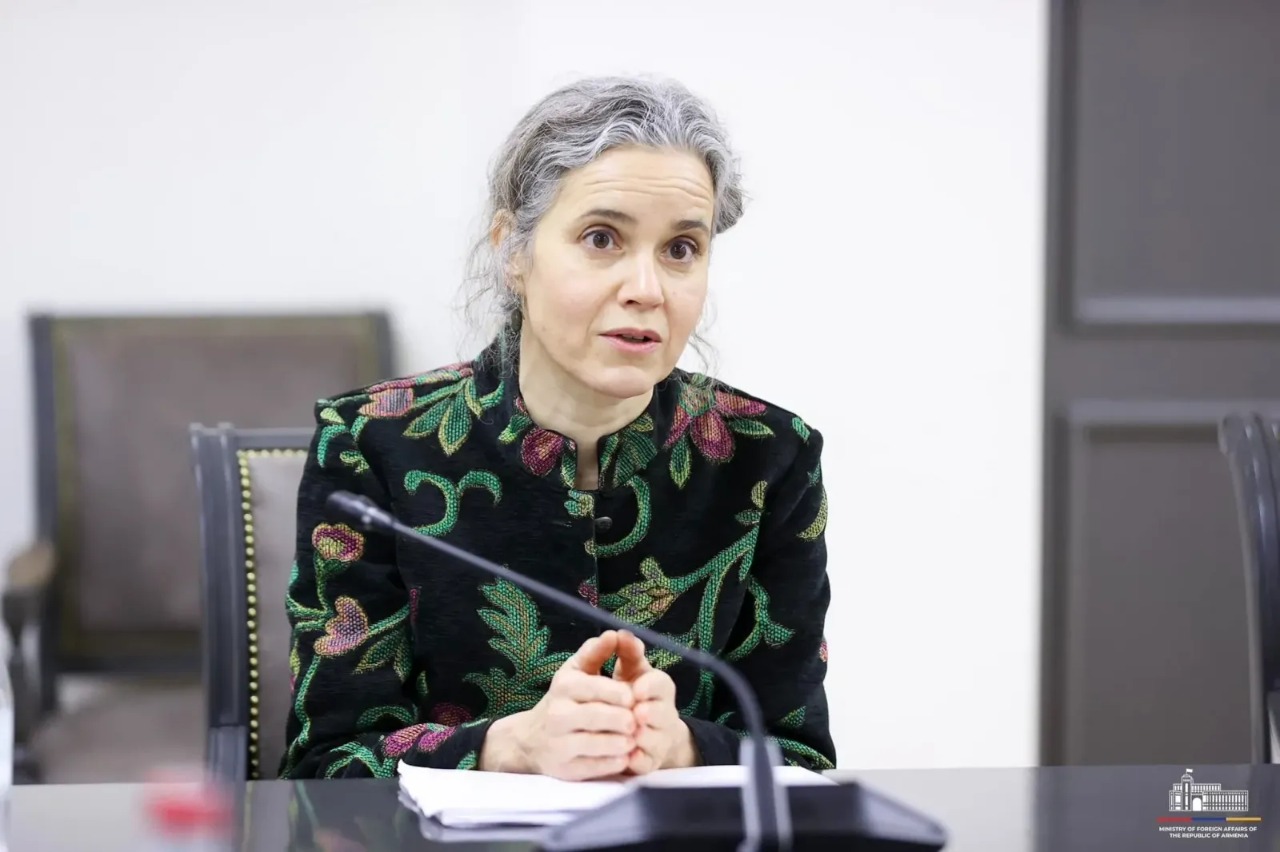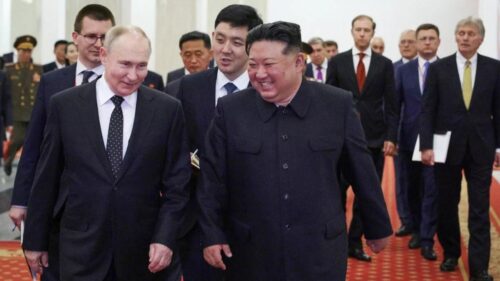
EU special representative: Azerbaijan and Armenia have a structured and well-organized framework for their discussions, with a clear commonly agreed basis and scope
For the EU, it’s very important that the normalization process between Armenia and Azerbaijan continues in a calm and positive environment, building on past achievements and successes reached in various formats, European Union Special Representative for the South Caucasus and the crisis in Georgia Magdalena Grono told Armenpress.
Grono said that during her Baku visit, she heard encouraging statements regarding peace and stability in the region that were often different from what is said in the public space. Speaking about her meetings in Armenia, Grono stressed that the Armenian authorities have a forward-looking approach, with a clear willingness to turn the page on hostility and establish a stable and peaceful environment.
In the interview, Grono also touched on the accusations and criticism voiced by Azerbaijan against the EU Mission in Armenia, the EU’s actions in the settlement process between Armenia and Azerbaijan, and the topic of unblocking communications in the South Caucasus.
Armenpress: Mrs. Grono, on January 8, during your visit to Baku, the President of Azerbaijan, Ilham Aliyev, once again made threats against Armenia, essentially casting doubt on the possibility of establishing peace in the South Caucasus. During your meeting with Aliyev in Baku, did you address these threats, and what do you think—can peace in the South Caucasus be achieved under conditions where the leadership of Azerbaijan regularly threatens Armenia and makes unfounded territorial claims?
EUSR Magdalena Grono: You are indeed referring to an element of the context in which my visit to Azerbaijan took place. Issues relating to public rhetoric, the need to prepare populations for a peaceful future, to address and lower threat perceptions, including through public reconciliation efforts and positive rhetoric that commits to peace, were among the points raised in my meetings in Azerbaijan. For the EU, it’s very important that the normalisation process between Armenia and Azerbaijan continues in a calm and positive environment, building on past achievements and successes reached in various formats, most recently on their bilateral track. In our exchanges in Baku, I heard encouraging statements regarding peace and stability in the region; these were often different from what we have heard in the public space, in particular on the continuation of the normalization process between the two countries. I believe an important first stage of normalization is already seeing results: Azerbaijan and Armenia have a structured and well-organised framework for their discussions, with a clear commonly agreed basis and scope. Now is the time to display the political will that is needed to turn the page of conflict once and for all, to agree on mutually acceptable solutions for all outstanding issues, and to ensure a peaceful and more prosperous life for all populations in the region.
Armenpress: The President of Azerbaijan is demanding that Armenia stop acquiring weapons, while at the same time, he is rapidly building up his country’s arsenal. Parallel to this, Azerbaijan’s leadership continues to spread false claims that Armenia’s Constitution contains territorial demands against Azerbaijan, and there is ongoing rhetoric about the so-called “Zangezur Corridor.” Do you have the impression that Baku is preparing for a new attack on Armenia, and how credible do you find Azerbaijan’s statements that it is pursuing peace?
EUSR Magdalena Grono: All my interlocutors in Baku expressed the view that “the conflict has been settled”, that “the situation has been stabilized”, that there is “no intention to use force” and that the normalisation process should continue in all its dimensions. Again, what I heard during my meetings was very different from what we sometimes hear in the public space. The 11th meeting of Armenia’s and Azerbaijan’s border commissions took place on 16 January, as planned. I would like to welcome and commend the parties’ continued exchanges of views on future delimitation works and agreement reached on proceeding further with concrete delimitation works from the North to the South. This sends a very positive signal and I very much hope that similar progress will be ensured on other tracks, be it regarding the draft peace treaty, connectivity and resumption of communication links, or humanitarian issues. We are certainly strongly encouraging both sides to make a commitment to progress and warned about the negative impact of certain tendencies to the contrary.
Continuation in the source:


